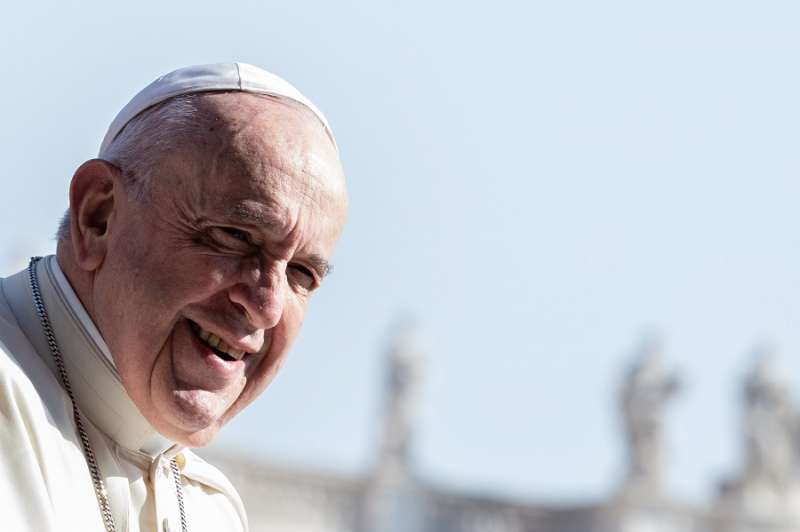Jesus’ glory is not found in the acclaim or applause of the world, but in the act of suffering and dying out of love – the same love demanded of everyone, Pope Francis said Wednesday.
“True glory is the glory of love, because it is the only one that gives life to the world,” the pope said at the general audience April 17.
“Certainly, this glory is the opposite of worldly glory, which comes when one is admired, praised, acclaimed,” he continued. “The glory of God, on the other hand, is paradoxical: no applause, no audience. At the center there is not the ego, but the other.”
On the eve of the Easter Triduum, Pope Francis spoke about the glory found in Jesus’ Passion and death, done out of love for the Father and asked people to reflect on the source of their own “glory.”
“What is the glory I live for? Mine or God’s?” the pope asked. “Do I just want to receive from others or also to give to others?”
The way to give God glory is to “live all that we do with love,” Francis said, “do everything with the heart, as for Him.”
He explained that Jesus is the perfect example of how to live all things with love for God the Father, pointing to his prayer at the Last Supper. As recounted in the Gospel of John, Jesus, “raised his eyes to heaven and said, ‘Father, the hour has come. Give glory to your son, so that your son may glorify you.’”
Francis noted that “Jesus asks for glory... while the Passion is at the door,” a request that seems paradoxical. “What glory is [the Passion]?”
The glory of God “is the distinctive sign of his saving presence among men.” Jesus, through his Passion and death, “shows God’s presence and salvation in a definitive way.”
“And he does it at Easter: raised up on the cross, he is glorified. There God finally reveals his glory: he takes away the last veil and astonishes us as never before. In fact, we discover that the glory of God is all love: pure love, crazy and unthinkable, beyond all limits and measure.”
Let us pray that during these days leading to Easter, meditating on the Crucifix, “we can accept that God is love,” Francis said.
He went on to note that sometimes it is difficult to see God as a loving Father, falling into seeing him as a severe judge instead of a merciful Savior. “But God at Easter clears the distance, showing himself in the humility of a love that demands our love,” he stated.
He urged people experiencing suffering, like their own Garden of Gethsemane, to remember to pray like Jesus, saying, “Father.”
“In fatigue, prayer is relief, trust, comfort,” he said. Even in his own interior desolation in the Garden of Gethsemane, Jesus is not alone because he is with the Father.
The pope pointed out that in periods of suffering or desolation, people often choose isolation, instead of praying, “Father,” and entrusting themselves to God and his will, “which is our true good.”
“But when we are closed in on ourselves in the test, we dig a tunnel inside, a painful introverted path that has a single direction: more and more deeply into ourselves,” he said. “The biggest problem is not pain, but how it is dealt with.”
But prayer, he said, is the way out. “Praying in these days the ‘Our Father,’ we can ask for one of these graces: to live our days for the glory of God, that is, with love.”

